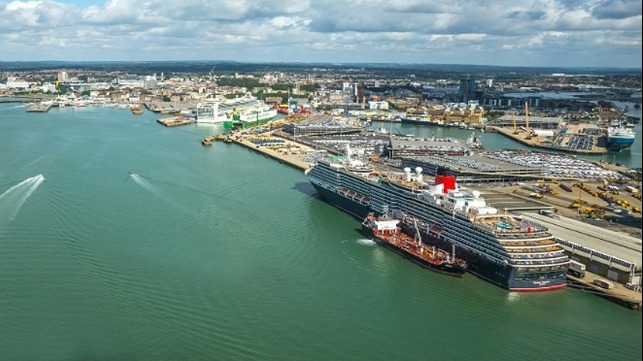UK Cruise Industry Develops COVID-19 Framework to Guide Restart

Seeking to lay the groundwork for the resumption of the UK cruise industry, the UK Chamber of Shipping working in partnership with key stakeholders produced a framework to guide the process for restarting the cruise industry. While recognizing that there is currently no restart date, the framework, however was shared with the UK government to lay the foundation for a safe resumption of cruising when the time is right and public health conditions allow.
The framework documents provide specific guidance in separate documents for cruise operators, passengers, and seafarers. According to the UK Chamber of Shipping, all three documents were built over a six-month process and the basis of identifying potential risks that could increase the spread of COVID-19, and the subsequent mitigations which should be put in place to reduce that risk. It was done using existing shore-side UK Government guidance as well as guidance from the European Centre for Disease Control, the European Maritime EMSA, EU Healthy Gateways, and the IMO.
“This new UK Chamber of Shipping Framework gives the government, passengers, crew, and operators the confidence that the very latest science and medical advice has been included in the industry's planning process,” said UK Chamber of Shipping Chief Executive Bob Sanguinetti. “A huge amount of time and effort has gone into this work and the new documents, which are fully supported by the sector, is a testament to the commitment of all concerned to protect the health and well-being of cruisers, seafarers and the public. We are not talking about restarting the sector tomorrow, but it is a vital first step in the process to get cruises sailing again when conditions allow and government guidance changes.”
Organized in three presentations for the different audiences, the documents explore the changes required to cruising as well as managing the process from staffing and preparation to passenger communications and operations.
For operators, it starts with the prerequisites prior to sailing including third-party verification of a COVID-19 management plan and the importance of informing passengers on the changes that will be made to cruising. This includes enhanced health screenings, changes made at the terminals, and what to expect on board and during the cruise.
The cruise operators also need to develop measures for the response and management of a possible COVID-19 case onboard their ships. This includes steps from pre-identification of dedicated isolation and quarantine wards to working with national authorities to facilitate steps such as contact tracing and disembarkation of a confirmed COVID-19 case. The operators are also responsible for the repatriation of passengers and crew and the framework sets out the steps to be taken.
The framework also looks at the manning of the ship saying that crew selection should be done to mitigate the risk of introducing COVID-19 aboard a cruise ship. They also recommend that the crew be isolated before joining the ship and required to have negative COVID-19 tests. The crew should be instructed in the COVID-19 processes and mitigation before joining the ship and while onboard accommodated in single cabins with private bathroom facilities. The crew should also be grouped based on job type and shift time and remain in these groups at all times to limit broader interactions.
The passenger guidance provides advice on the necessary considerations to be aware of before booking. It also provides information regarding what to expect during the cruise including specific measures they will need to adhere to throughout the cruise. For example, meals must be pre-booked or at set times and passengers can only dine with their own family or traveling party, not joining up with other passengers on the ship. Passengers are also asked to maintain social distancing and wear face coverings as required as well as maintain hand hygiene, but there is no specific requirements for COVID-19 testing other than a health screening. Among the new document that passengers will be asked to supply is contact forms for their whereabouts in the UK. This will assist if contract tracing should be required.
Shore excursions will also be modified to ensure that the safety of passengers and seafarers can be upheld. Operators will not let passengers disembark in countries that are not on the UK’s travel corridor list, and shore excursions offered by operators will provide health measures comparable to those onboard the ship. This includes social distancing, mandatory use of face coverings, and hand hygiene facilities during excursions.
Maritime Minister Robert Courts welcomed the launch of the new guidance saying, “Our cruise industry has been hit hard by COVID-19 and the government has worked alongside the sector to prepare for a safe and successful restart. This industry framework puts passengers and workers at its heart and is an important step forward to allow cruises to prepare to set sail when safe to do so.”

that matters most
Get the latest maritime news delivered to your inbox daily.
According to the UK Chamber of Shipping, the comprehensive presentation will provide an important process to ensure the safe restart of cruising in the UK. The documents before release were shared with stakeholders across the industry and were agreed by the major operators.
